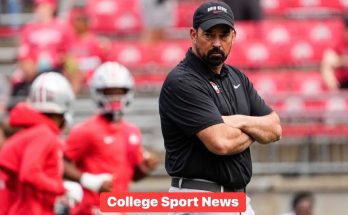In the fiercely competitive arena of Southeastern Conference (SEC) baseball, collaboration and mutual support among coaches can often be overshadowed by rivalry. However, the journey of Tony Vitello, head coach of the Tennessee Volunteers, offers a compelling narrative of how camaraderie and guidance within the SEC coaching fraternity have been instrumental in shaping a championship-winning program.
Tony Vitello’s Path to Tennessee
Tony Vitello’s coaching career is deeply rooted in the SEC. Before taking the helm at Tennessee in 2017, he served as an assistant coach and recruiting coordinator at the University of Arkansas under head coach Dave Van Horn. During his tenure at Arkansas, Vitello honed his skills in player development and recruitment, contributing to the Razorbacks’ consistent success. His experience at Arkansas not only provided him with a deep understanding of SEC baseball dynamics but also fostered relationships with fellow coaches that would prove invaluable in his future endeavors.
Building the Tennessee Program
Upon his arrival at Tennessee, Vitello faced the formidable task of revitalizing a program that had not seen significant success in years. Recognizing the challenges ahead, he leaned on the relationships he had built within the SEC coaching community. Coaches like Dave Van Horn and others provided insights and advice, sharing their experiences to help Vitello navigate the complexities of building a competitive program in the SEC.
Vitello’s approach to recruitment and player development was heavily influenced by the mentorship he received from his SEC peers. He adopted best practices in scouting, training, and game strategy, tailoring them to fit Tennessee’s unique context. This collaborative spirit extended beyond formal interactions, as casual conversations and shared experiences with fellow coaches offered practical solutions to common challenges faced in SEC baseball.
The Role of SEC Coaches in Tennessee’s Success
The support from SEC coaches was not limited to mentorship. There was a palpable sense of encouragement for Vitello’s efforts to elevate Tennessee’s baseball program. This support manifested in various forms, from sharing scouting reports to providing strategic insights during off-season clinics and meetings. The collective goal among these coaches was to enhance the overall competitiveness of SEC baseball, recognizing that the success of one program could elevate the conference as a whole.
This environment of mutual support played a crucial role in Tennessee’s ascent in college baseball. The Volunteers’ remarkable journey to their first-ever National Championship in 2024 was a testament not only to Vitello’s leadership but also to the collaborative ethos of the SEC coaching fraternity. The championship run was marked by strategic decisions and player performances that bore the imprint of shared knowledge and collective wisdom within the conference.
Vitello’s Acknowledgment of SEC Support
Throughout this journey, Vitello has been candid about the impact of his SEC coaching peers on his development and Tennessee’s success. In various interviews, he has expressed gratitude for the guidance and support received, emphasizing that the collaborative spirit within the SEC has been a cornerstone of his coaching philosophy. This acknowledgment underscores the often-overlooked aspect of coaching: the influence of a supportive professional community in achieving excellence.
The Broader Impact on SEC Baseball
The success of Tennessee under Vitello’s leadership, bolstered by the support of SEC coaches, has had a ripple effect across the conference. It has heightened the level of competition, prompting programs to innovate and strive for excellence. This collective push has not only elevated the standard of play within the SEC but has also enhanced its reputation nationally, attracting top talent and increasing the visibility of SEC baseball.
Before the Season, SEC Coaches Were a Huge Help to Tony Vitello and the Tennessee Vols
The Southeastern Conference (SEC) is widely regarded as one of the most competitive and challenging environments in college baseball. Success in the SEC requires more than just talent—it demands strategic mastery, relentless recruiting, and the ability to cultivate a winning culture. Tennessee head coach Tony Vitello has emerged as one of the brightest minds in college baseball, leading the Volunteers to new heights. However, his journey was not a solo endeavor.
Before the season, SEC coaches played an instrumental role in helping Vitello and the Tennessee Vols refine their approach and elevate their program. Their guidance, mentorship, and even friendly competition helped shape Tennessee’s trajectory, ultimately making them one of the most formidable teams in the nation. This article explores the impact that SEC coaches had on Vitello and the Volunteers, how this support manifested, and why this collaborative spirit benefits the entire conference.
Tony Vitello’s Journey to Tennessee
Tony Vitello’s coaching career began long before he arrived in Knoxville. He spent time as an assistant coach at Missouri, TCU, and Arkansas, learning from some of the best minds in baseball. His tenure at Arkansas under head coach Dave Van Horn was particularly impactful.
Van Horn, one of the most respected coaches in college baseball, had built Arkansas into a powerhouse, consistently competing at the highest level. Under Van Horn’s guidance, Vitello honed his recruiting prowess and developed a deep understanding of how to construct a winning program. His ability to scout and develop talent quickly became one of his defining traits, setting the stage for his future success.
When Tennessee hired Vitello in 2017, the program was in dire need of a resurgence. The Volunteers had not made the NCAA Tournament since 2005, and they were struggling to compete in the ultra-competitive SEC. While Vitello possessed a strong vision for the program, he knew that he would need help along the way. Fortunately, the SEC coaching fraternity was willing to provide that support.
The Role of SEC Coaches in Vitello’s Growth
Despite the intense rivalries in the SEC, there is an underlying sense of respect and mentorship among coaches. Many of them have crossed paths during their careers, and they recognize the value of helping one another improve.
Before the 2024 season, multiple SEC coaches extended their guidance to Vitello and his staff. Conversations at offseason meetings, informal phone calls, and even advice shared during recruiting battles helped shape Tennessee’s approach. While not every detail of these discussions is made public, Vitello has often credited his SEC counterparts for their willingness to share insights.
One of the most notable mentors for Vitello has been Kevin O’Sullivan of Florida. O’Sullivan has been one of the top coaches in the country for years, leading the Gators to a national title in 2017. His expertise in pitching development and in-game strategy has influenced many younger coaches, including Vitello.
Another key figure in Vitello’s growth is Tim Corbin of Vanderbilt. Corbin’s ability to build a sustained powerhouse in Nashville has been remarkable, and his approach to player development has become a model for others. During SEC meetings, Corbin has been known to provide valuable insight into roster construction and team culture—lessons that Vitello has taken to heart.
Recruiting Battles and Shared Wisdom
Recruiting is the lifeblood of any successful college baseball program, and in the SEC, it is an all-out war. The best high school and junior college players in the country are courted by multiple SEC programs, making it a relentless and highly competitive process.
While SEC coaches battle fiercely for top talent, they also recognize the importance of elevating the conference as a whole. Before Tennessee became a national powerhouse, Vitello and his staff often found themselves competing against more established SEC programs for recruits. However, instead of shutting him out, some rival coaches shared advice on how to navigate the recruiting landscape more effectively.
For example, LSU’s legendary coach Paul Mainieri, who retired in 2021, was known for his ability to connect with recruits and their families. While he and Vitello were competitors, Mainieri offered guidance on the importance of building relationships and selling a long-term vision to players.
Additionally, Mississippi State’s coaching staff provided insights on player evaluation. Mississippi State, a program with a storied history, has consistently found ways to develop under-the-radar talent. The Bulldogs’ staff emphasized to Vitello the importance of looking beyond raw talent and focusing on intangibles like work ethic and coachability.
By absorbing these lessons, Vitello and his staff refined their recruiting approach, allowing them to land game-changing players who would eventually lead Tennessee to national prominence.
Game Strategy and Tactical Adjustments
Beyond recruiting, SEC coaches also played a role in helping Vitello fine-tune his game strategy. In the SEC, every small detail matters—pitching matchups, defensive shifts, and lineup construction can be the difference between winning and losing.
Vitello has frequently praised the tactical acumen of his SEC counterparts. Coaches like Chris Lemonis (Mississippi State) and Jim Schlossnagle (Texas A&M) have built reputations for their in-game adjustments, and Vitello has learned from studying their approaches.
During offseason meetings and informal conversations, SEC coaches exchanged ideas about handling different game situations. Some of the key areas where Vitello benefited from their input included:
- Bullpen Management: How to effectively utilize relievers in high-pressure situations, an area where Florida’s O’Sullivan has excelled.
- Defensive Positioning: Insights from Vanderbilt’s Corbin on the use of analytics to optimize defensive alignments.
- Hitting Approach: Discussions with Arkansas’ Van Horn about adjusting hitting strategies based on opposing pitchers.
These lessons helped Tennessee develop a more refined and adaptable game plan, which was evident in their performances against top-tier opponents.
Tennessee’s Rise and the Impact of SEC Support
As Tennessee surged to the top of the college baseball world, Vitello never forgot the support he received from his SEC peers. By implementing the lessons learned from other coaches, he transformed Tennessee into a legitimate title contender.
The Vols’ success has also contributed to raising the overall level of competition in the SEC. As Tennessee improved, other programs had to adjust and innovate to keep pace. This dynamic has made the SEC even stronger, reinforcing its status as the premier conference in college baseball.
In 2024, Tennessee captured its first-ever national championship, a crowning achievement for Vitello and his staff. While the victory belonged to the Volunteers, it also served as a testament to the culture of excellence within the SEC coaching fraternity. The collaborative spirit that helped Vitello early in his career had come full circle, solidifying the idea that success in the SEC is not just about individual teams, but about the growth of the conference as a whole.
Conclusion
Tony Vitello’s rise at Tennessee has been one of the most remarkable coaching stories in college baseball. While his talent, dedication, and leadership have been instrumental in the Vols’ success, he has never been shy about acknowledging the impact of SEC coaches on his journey.
Before the season, guidance from experienced SEC coaches helped Vitello refine his recruiting approach, game strategy, and overall program management. Their willingness to share knowledge—even with a direct competitor—highlights the unique culture of the SEC, where intense rivalries are balanced by mutual respect and a shared commitment to excellence.
As Tennessee continues to establish itself as an SEC powerhouse, Vitello’s experience serves as a reminder that coaching success is rarely achieved in isolation. The support and wisdom of mentors and rivals alike can make all the difference, and in the SEC, that collaborative spirit is alive and well.



